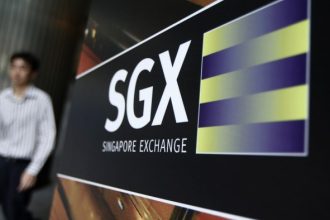CANBERRA (Reuters) -Australia has rejected European Union proposals for a free trade agreement, and a deal is now unlikely to be reached for several years, Australian government ministers said on Monday.
The country’s largest farm industry group thanked the government for its refusal to “throw farmers under a bus” by signing a deal it says would not have let enough of their products into the EU.
The two sides have been negotiating since 2018, with Australia eager to boost agricultural exports by removing EU tariffs and expanding quotas, and Europe likely to gain greater access to Australia’s critical minerals industry.
Australian Trade Minister Don Farrell said after a meeting with his EU counterpart, Valdis Dombrovskis, in the Japanese city of Osaka over the weekend that no progress had been made.
“I came to Osaka with the intention to finalise a free trade agreement,” Farrell said in a statement.
“Unfortunately we have not been able to make progress,” he said. “Negotiations will continue, and I am hopeful that one day we will sign a deal that benefits both Australia and our European friends.”
Australia’s agriculture minister, Murray Watt, said the EU – one of the world’s largest markets – had only slightly tweaked the proposal it put on the table three months ago.
“We just weren’t able to see the EU increase its offer for things like beef, sheep, dairy, sugar, enough for us to think that this deal was in Australia’s national interest,” he told ABC Radio.
Watt said it would be some time before the Australian government and EU leadership would be able to negotiate a deal because of upcoming elections in EU.
“The EU next year will go into its election cycle. It’s always much harder for countries and regions to negotiate these sorts of trade agreements on the eve of elections,” he said.
‘DUD DEAL’
Australian farm groups had pressured the government not to sign a “dud deal” that would put their members at a disadvantage to competitors in New Zealand, Canada and South America, who have greater access to EU markets.
The EU signed a trade deal with New Zealand last year that lowered tariffs for EU exports including clothing, chemicals and cars, and allowed more New Zealand beef lamb, butter and cheese into the EU.
“It’s disappointing the Europeans weren’t willing to put something commercially meaningful on the table,” National Farmers’ Federation President David Jochinke said in a statement thanking Farrell for rejecting the EU’s terms.
Read the full article here





